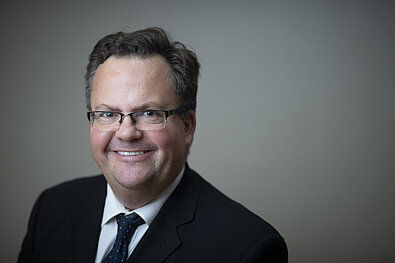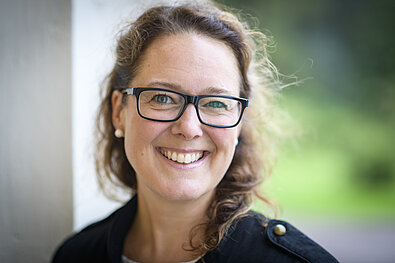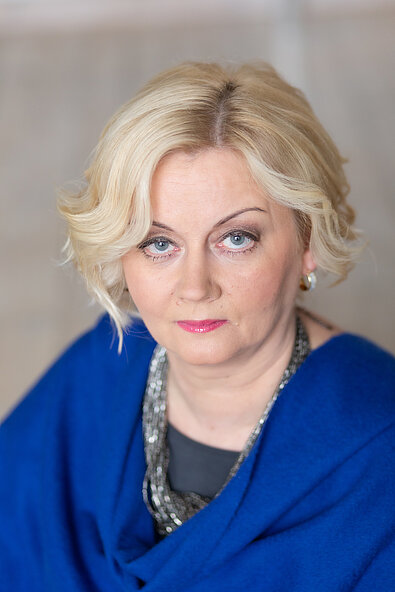Professor Rob Freathy, University of Exeter, United Kingdom
Rob Freathy is the Academic Dean for Students and Dean of the Faculty of Taught Programmes at the University of Exeter, UK. He is also a Professor of Education in the University’s Graduate School of Education which he led previously as Head of School. His research interests include religious education, history of education, and curricular and pedagogical innovation. He is a member of the Editorial Boards for History of Education, Journal of Beliefs and Values and History of Education and Children's Literature. He is co-editor of a series of books published by Peter Lang on the theme of Religion, Education and Values (Vol. 16, 2020), and an Editorial Board member for a Routledge Series on Life and Values Education. He has also authored and edited numerous books, including Religious Education and Freedom of Religion and Belief (2012), History, Remembrance and Religious Education (2014), Politics, Professionals and Practitioners (2017) and Metacognition, Worldviews and Religious Education (2019). He has contributed articles to many journals including: Oxford Review of Education, Research Papers in Education, British Journal of Educational Studies, and History of Education.
The RE-searchers Approach: Exemplifying Big Ideas about the study of religion(s) and worldview(s)
This presentation will present the case for multi-disciplinary, multi-methodological, inquiry-based, and reflexive learning in Religious Education. It will also advocate the creation of metacognitively-orientated RE classroom environments in which pupils are taught to ask why, how, where and by whom ‘knowledge’ of religion(s) and worldview(s) is generated, disseminated and applied. In these regards, the presentation will posit four ‘Big Ideas about the study of religion(s) and worldview(s)’ to highlight the symbiotic relationship between knowledge and knower, and to reject the false dichotomy between the object of study and method of study (way of knowing). To demonstrate how this critical and dialogic framework can be applied in practice, it will describe and explain the ‘RE-searchers approach’ to multi-faith Religious Education in primary schools (5-11 year olds). This approach aims to initiate pupils into the communities of inquiry concerned with the academic study of religion(s) and worldview(s) (e.g. Theology, Religious Studies and cognate disciplines). It does so by presenting pupils with four accessible ‘RE-searcher’ characters whose various approaches to academic study pupils are encouraged to adopt and then critique (Debate-it-all Derek, Have-a-go-Hugo, Ask-it-all-Ava and See-the-story Suzie). The presentation will also explain how this approach was subsequently reworked in a textbook for Secondary schools (11-18 years) – Who is Jesus? – which introduces pupils to different disciplines (such as Biblical studies, Islamic theology and Christian contextual theology), through the eyes of different academics who appear regularly through the resource making comments and explaining ideas relevant to chapter titles, including: ‘Who is Jesus for gospel writers?’, ‘Who is Jesus for Muslims?’, ‘Who is Jesus for feminists?’ and ‘Who is Jesus for Christians today?’.
Respondent: Knut Aukland
Associate professor Caroline Klintborg, Stockholm University
Caroline Klintborg is an associate professor of Religious Education at Stockholm University, Sweden. The overarching themes of her research relate to questions about meaning-making and the importance of the social and cultural context in which people’s understanding of life takes shape. Klintborg is interested in concept development and works in her research with a focus on the concept of ‘existential configurations’, while also considering the meaning of ‘participation’ in a Christian church context and ‘vulnerability’ in the field of Religious Education.
Searching for a renewal of Religious Education Identity – a Swedish perspective
In my lecture, I will discuss the meaning of an intended renewal of Religious Education Identity. My point of departure is taken from a Swedish perspective where the subject of RE is non-confessional, and students share the same teaching space regardless of background. The aim when teaching the subject of religion in Sweden is to help the pupils to ‘develop knowledge of religions and other outlooks on life in their own society and in other parts of the world’. From a Swedish angle, my argument is that the aim of the subject also will be to help young people develop a language for their own meaning-making. In my lecture I will discuss how concepts used in the RE classroom can either open or close classroom conversations and I will share some empirical material to underline my argument.
Respondent: Siebren Miedema

Dr. Siebren Miedema (1949) is as Emeritus Professor in Religious Education in the Faculty of Religion and Theology and Emeritus Professor in Educational Foundations in the Faculty of Behavioural and Movement Sciences still affiliated with the Vrije Universiteit Amsterdam, the Netherlands. He is also acting in this university and in an inter-worldview teachers college in Amsterdam and Alkmaar as Confidential Advisor on Academic Integrity. He has published numerous books, chapters and articles both in academic and professional journals and newspaper articles and gave numerous lectures all over the globe.
His main research topics are: personhood formation from an inter-worldview perspective; the interrelated positioning of worldview education in the public, the social and the private domain, the concept of worldview citizenship education within liberal-democratic societies, and meaningful academic contributions nationally and internationally in cooperation with joint stakeholders from a philosophy of science perspective.
Dr. Paed., is a professor of University of Latvia in philosophy of education, vice dean of the Faculty of Pedagogy, Psychology and Art, expert in education at the Council of Sciences of the Republic of Latvia. Her main research interests are philosophy of education, digital childhood, transversal skills and critical thinking, she has a projects and publications on this topic, participates in international scientific conferences.
Digital Childhood: Some Reflections from the Point of View of Philosophy of Education
The presence of information and communication technologies in the children's everyday life that promotes changes both in their world perception, emotional attitudes and social skills change also the social views about childhood as a socially constructed phenomenon in its traditional understanding and makes the researchers turn seriously to the analysis of digital childhood. The latest research in social sciences confirms that the user of technologies in the second decade of the 21st century in the society of well-being is already 3-4 years old and even a toddler.
Researchers describe the culture of today's children as different, unknown and incomprehensible that urges researchers seek the answers to the questions: how will the changes introduced in children's social habits by digitalization influence their life in future? Do we use technologies in our everyday life as a possibility to promote the children's development or, just on the contrary, - they become a threat? How do the changes in children's social habits brought about by technologies transform the society's understanding of childhood as a social phenomenon?
Respondent: Dace Balode
Professor Martin Ubani, University of Eastern Finland
Martin Ubani, Phd, MTheol, holds the chair of Professor of Religious Education at the School of Theology & the School of Applied Educational Science and Teacher Education at the University of Eastern Finland. His research interests include religion, multiculturalism and education, RE teacher education and didactics of RE. He holds several Academic positions of trust. Since 2017 he has been a library fellow at the Van Leer Institute, Jerusalem.
Homepage: uefconnect.uef.fi/en/person/martin.ubani/
Religious literacy, 21st century skills and the RE teacher: teacher education at the crossroads?
In this presentation I will discuss religious literacy in the context of 21st century skills. Religious literacy has been a focus on discussions of several fields increasingly especially during the latest decade. While religious literacy has been in use when discussing public education curricula for longer, the developments in Western educational policy toward skills-based curricula has lately offered a new conceptual framework for the re-appearance of religious literacy in public education. Arguably in the field of RE, not only these generic educational developments but also the developments with regards to the disintegration in the core of the subject and powerful knowledge have contributed in the recent rise in demand for religious literacy as an integrative concept. In concrete I will look at religious literacy as a curricular objective, professional competence, quality criterion and legitimacy politics in education. After outlining religious literacy as a 21st century skill, I will then focus on the requirements it places for RE teachers and teacher education. In this discussion I will draw insights from a research project (2018-2021) funded by Finnish Ministry of Education and Culture: “21st century skills, multiple literacies and developing RE teacher education”.
Respondent: Olga Schihalejev

Olga Schihalejev works as an associate professor of Religious Education in School of Theology and Religious Studies at the University of Tartu. She has been involved in the development of a values game for teachers and have produced a range of didactic and methodological teaching materials on values education and religious education.
Her research interests include issues related to didactics of religious education, as well as values education in schools more broadly, and issues related to cultural and religious diversity in schools, from the perspective of both learners and teachers. In particular, she has studied students' attitudes towards diversity of worldviews and teachers' strategies for dealing with this diversity.

 Akadēmiskais centrs
Akadēmiskais centrs



